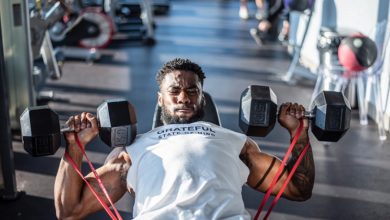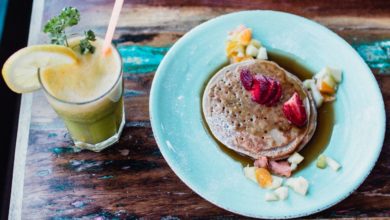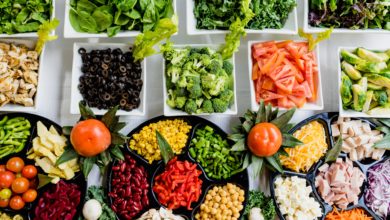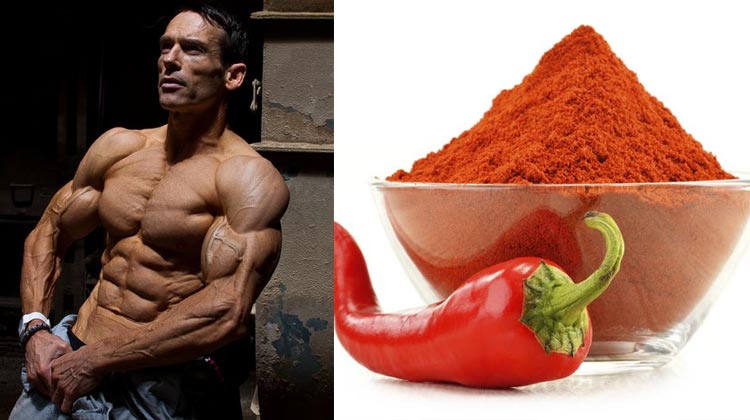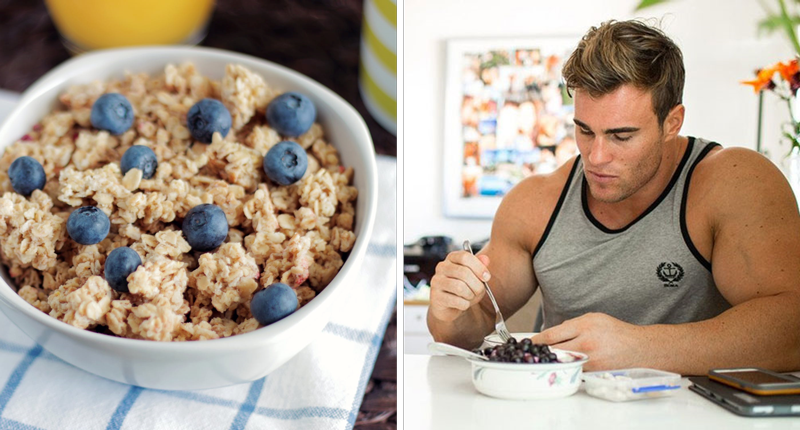
Back in the day many an athlete went low-carb. More specifically it was bodybuilders looking to add size, without the fat that can come with it. In their minds, it was all about lean protein followed by a few fats and broccoli. So, why are carbs actually important for building muscle? Keep reading to find out…
Going low-carb is still popular among the physique crowd today. Researchers suggest it’s a better way to burn fat and can help you get ripped faster. But what about when it comes to muscle?
The truth is, what’s good for the goose isn’t always the best for the gander. Low-carb will help you cut up to an extent, but it’s not made for building muscle.
It turns out many of those old-school guys probably held back their potential gains. Well, that’s the natural ones anyway…
Why are carbs important for building muscle?
This is the question on your mind right now. Just why are the most demonized macro on the gym floor so essential? Aren’t carbs all about energy spikes and fat gain?
No. There’s a lot more going on behind the scenes with these saccharides than meets the eye. Let’s take a look at why carbs are important for building muscle…
Carbs give you energy to train
Carbohydrates deserve more credit than we give them. Firstly, they’re our body’s preferred source of energy. Even when fats and protein are present, carbohydrates are our go-to movement juice.
A low-carb diet isn’t designed for energizing athletes. Especially those who undergo high-intensity training, say, like a hypertrophy or strength workout.
That’s why hitting a session while seriously lacking in sugars can have you feeling drained during the first set. Stock your muscles up with glycogen though, and you’re good to go.
So, by providing you with the energy to train, carbs aid muscle building. They allow you to work harder to force a greater amount of microcellular damage. The more muscle tears you create, the more room for growth (given proper recovery).
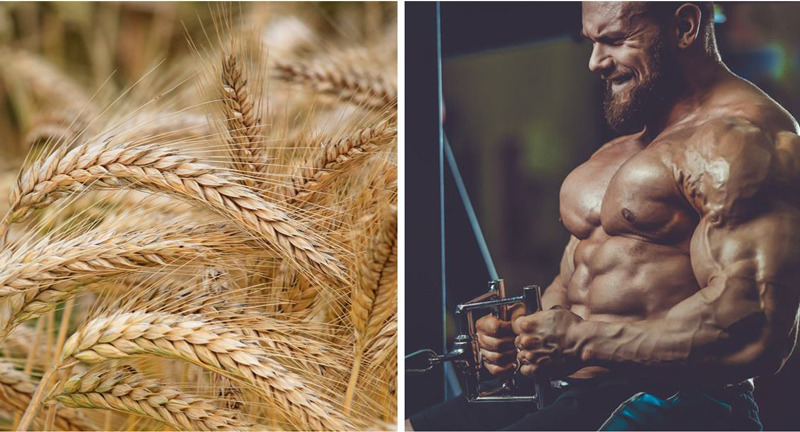 Carbohydrates and protein synthesis
Carbohydrates and protein synthesis
Protein synthesis is a process when biological cells generate new protein. This is usually balanced out by protein degradation, when the body breaks down (you guessed it) protein cells.
For simplicity, see this as new protein structures being formed. These can then be used to re-build and bolster damaged muscles. If protein synthesis doesn’t happen, your torn muscle fibers can’t be repaired, which would result in loss of lean mass.
Almost every single scientist on planet earth agrees that protein ingestion post-workout improves protein synthesis. Does that mean you have to guzzle a shake before your dropped dumbbell hits the gym floor? Not really.
Having a protein rich meal between 30-minutes to two hours after training seems to have the best results.
[infobox]Forget the 30-minute anabolic window! That shipwreck has since washed up on ‘broscience’ island, it was mainly a marketing tactic.[/infobox]Here’s where the carbs come in…
But there is also research that suggests carbohydrates actually improve protein synthesis. This is just one reason to include fast-acting carbs in your post-workout nutrition ritual.
Apparently, it’s all to do with the body releasing insulin when it detects carbs in the system. This process then helps push amino acids into the muscle and speeds up the regeneration of protein [2][3].
In the case of carbs, the sooner you can get to them the better. So, if you can stomach it, try to snack on something simpler with a lower glycemic index after training.
Carbs are protein sparing
Another great property of carbohydrates is they’re protein sparing. Besides just tasting good, they might even help protect your physique.
Remember how we talked about carbs being your bodies preferred energy? Well, when you ingest them one or two things happens. If you’re about to exercise, then the sugars in your blood will be used to fuel a session.
Not training? They’ll then be stored in your muscles and liver as glycogen. Now when you do decide to work out, in say an hour or two, your body transforms the glycogen back into glucose for energy.
When you have no carbs in the tank…
But what about when you’ve not got any of these sugars at all? Unless you’ve got fats to burn through, i.e. entering ketosis, you might metabolize muscle.
This is bad news if you want to make any kind of size gains. You’ll literally break down your existing muscle for fuel rather than grow any extra.
If you have an abundance of protein in your diet, this might supply the energy. But it won’t end up stacked on your back.
How else will you energize that hardcore lifting session? Something’s got to give…
It’s not just a problem for when you train either. You’re just as much at-risk post-workout when glycogen and fat energy stores are low.
[infobox]After a tough session your body needs all the energy it can get to recover which, if you’re not smart, might come from your hard-earned muscle. This is especially true if you work out in the evening before sleep or when you’re fasted.[/infobox]The fix? Eat your carbohydrates brother.
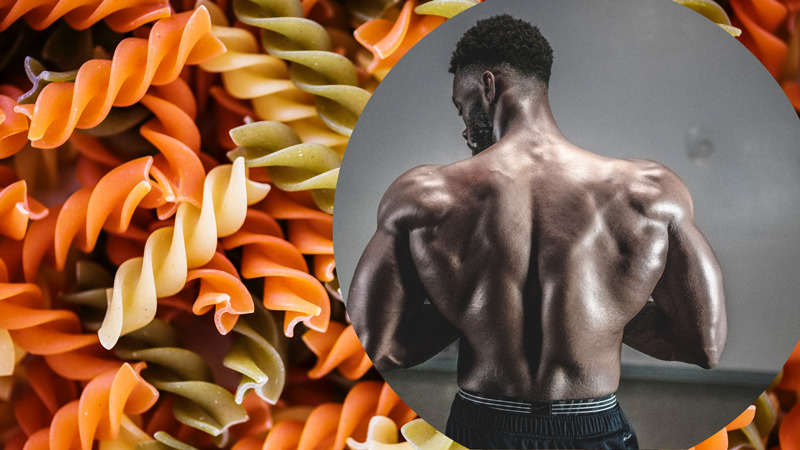 Carbs help you recover better
Carbs help you recover better
Another reason to hit the grains for gains is better recovery. As we all know, after going hard in the iron house it’s our R&R that makes the difference.
Once you’ve finished training your body is craving to refill its glycogen stores. Scientists say that the faster you can get carbs back into your system the better too [4].
We’ve already talked about the direct importance of carbs for building muscle. They can help improve protein synthesis, meaning your muscle fibers can grow back bigger, better, and stronger.
But there’s more at play in recovery too…
Carbs keep colds at bay and you in the game for longer
One interesting way carbs boost recovery is by bolstering the immune system.
We all know that intense exercise makes you more at risk of illness, right? Simply put, it suppresses the immune system especially during recovery.
Do it day in and day out and it’s only a matter of time before you pick up a common cold. Well, that or some other kind of illness…
But now there’s a study that shows carbs can keep us free from sickness for longer [5]. Apparently, it’s because carbs actually alleviate exercise-induced immunodepression.
Now, if you want to build muscle you need to train. So, by keeping you free from illness for longer, carbs also indirectly help you build muscle.
Studies link carbohydrate consumption with better sleep
Now, this might seem a little left field, but better sleep equals bigger muscles. Not everybody thinks of their shut-eye as an essential part of bulking but it’s true.
[infobox]Sleep is when you’re at the most anabolic. During your time of complete rest your muscles repair and grow at their peak. It’s also the period in which the most growth hormone is released too.[/infobox]Healthy sleep also influences testosterone levels. If you know a thing or two about your androgen hormones, you’ll know that this one is linked to muscle growth [6].
Poor sleep can sever your serum testosterone count even if you’re a healthy young buck [7]. Over time, chronic deprivation will severely impact your ability to stack lean mass.
Where do carbs come into all this?
Carbohydrates come into the equation for two reasons.
Number one, they can help you get to sleep faster. This means you hit an optimal state of rest quicker once you hit the sack. As it’s advised to get between seven to eight hours a night, falling asleep faster can get you at your most anabolic, quicker.
Secondly, carbs can even improve the quality of sleep you get. Studies have linked high-carbohydrate diets in men with improved REM sleep, which will leave you feeling more refreshed [8].
So, while your optimized sleep helps muscle growth and testosterone, you’ll have more energy too. Who says you can’t crush a seven AM session tomorrow morning?
When should you eat carbs to build muscle?
For recovery, try fast-acting carbs within an hour or two after training. Finer forms of glucose such as gels, dextrose, and table sugar can be consumed almost immediately.
Not only are the likes of white rice easier on the belly, but they have a higher glycemic index too. You’ll metabolize them faster and be able to refuel your glycogen stores quicker. The input of energy will help provide fuel for your body to build itself back stronger too.
Also, if you like to feast and fill up before a session, consider complex carbs. Brown rice, sweet potato, or oatmeal up to two hours before you train allows for slow release.
Rather than an energy spike, you can experience a smooth, sustainable ride. This is why oatmeal is such an awesome breakfast bowl for building muscle. It fills you up, drip feeds you fuel, and won’t have you crashing before you leave the front door.
Try not to munch your sweet potato too close to training though, as you’ll still be digesting it. Leave two hours between a workout and any big meal.
Okay, but what if you want a quick boost?
Ramp up your blood sugars by snacking on a high-GI option. Sports drinks, energy bars, and gels are all easy options.
Some fruits like pineapple are also fast acting but might best off 30-minutes before hitting the gym. Great pre-workout fruits include dates, pineapple, banana, and apples.
Experiment to find your favorite pre-workout fuel. Some guys like to eat sticky dates, while others will go for a candy bar or soda. It’s all down to personal preference.
[infobox]Just remember that simple sugars are digested quickly, whereas complex carbs are slower. Think about your timings and you’re good to go.[/infobox]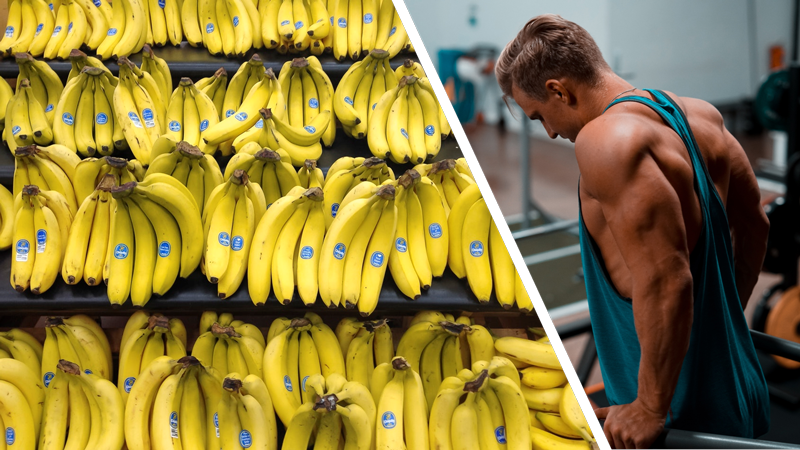 Final rep on why carbs are important for your muscle building gains
Final rep on why carbs are important for your muscle building gains
When it comes to building muscle, we can’t underestimate the importance of carbs. They’re the reliable macro that the fitness world loves to demonize but keep us going strong.
Carbs are natures way of supplying our muscles with energy to work. More specifically, glucose which is later turned to glycogen. While it’s true we can go keto and burn fat for fuel, nothing quite beats carbohydrates for go-power.
By filling your muscles with glycogen, you can improve work volume. As a result of putting in those extra reps you should also accelerate muscle growth. So, you can thank your pre-workout banana or breakfast oats for the added gains.
Not only that, but carbs have been proven to help indirectly too. They can positively influence protein synthesis for a start, which is the process of building new muscle.
Also, studies show that chowing down on a crunchy slice of whole-wheat toast before bed you might sleep better. Carbs have got your back even after you’ve left the gym.
So, what are you waiting for? We’re officially advocating you ditch your dietary fears and embrace carbohydrates today. Building muscle never tasted so good did it?
More muscle building nutrition you might like:
- Will Eating Carbs at Night Boost Your HGH?
- Lean Bulking: How to Build Mass Without Getting Fat
- Here’s Why You Should Try This Muscle Building Diet Plan Today
References
- Børsheim E, Cree M, Tipton K, Elliott T, Aarsland A, Wolfe R. Effect of carbohydrate intake on net muscle protein synthesis during recovery from resistance exercise. J Appl Physiol. 2004;96(2):674-678. doi:10.1152/japplphysiol.00333.2003
- Wang W, Ding Z, Solares G et al. Co-ingestion of carbohydrate and whey protein increases fasted rates of muscle protein synthesis immediately after resistance exercise in rats. PLoS ONE. 2017;12(3):e0173809. doi:10.1371/journal.pone.0173809
- Figueiredo VC, Cameron-Smith D. Is carbohydrate needed to further stimulate muscle protein synthesis/hypertrophy following resistance exercise?. J Int Soc Sports Nutr. 2013;10(1):42. Published 2013 Sep 25. doi:10.1186/1550-2783-10-42
- Burke L, Kiens B, Ivy J. Carbohydrates and fat for training and recovery. J Sports Sci. 2004;22(1):15-30. doi:10.1080/0264041031000140527
- Peake J, Neubauer O, Walsh N, Simpson R. Recovery of the immune system after exercise. J Appl Physiol. 2017;122(5):1077-1087. doi:10.1152/japplphysiol.00622.2016
- Griggs R, Kingston W, Jozefowicz R, Herr B, Forbes G, Halliday D. Effect of testosterone on muscle mass and muscle protein synthesis. J Appl Physiol. 1989;66(1):498-503. doi:10.1152/jappl.1989.66.1.498
- Leproult R, Van Cauter E. Effect of 1 week of sleep restriction on testosterone levels in young healthy men. JAMA. 2011;305(21):2173–2174. doi:10.1001/jama.2011.710
- St-Onge MP, Mikic A, Pietrolungo CE. Effects of Diet on Sleep Quality. Adv Nutr. 2016;7(5):938–949. Published 2016 Sep 7. doi:10.3945/an.116.012336


